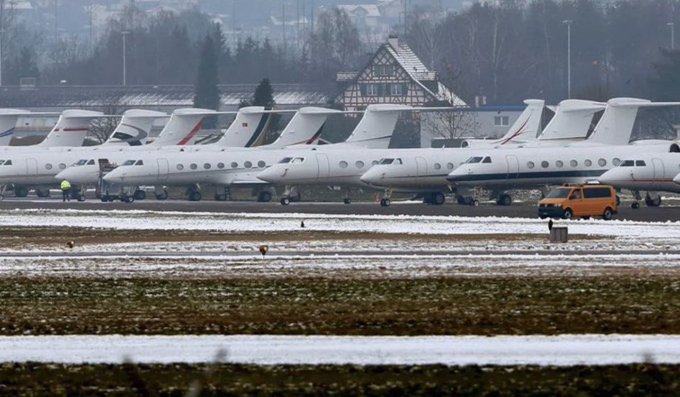Joe Bloggs is a useful YouTube channel for analysis of the terminal state of many nations’ economies following the West’s sanctions against Russia, though of course it also notes their individual problems of corruption, COVID or whatever. Replying to queries about why each title begins with an accusatory “RUSSIA,” he explains that if Russia had not invaded Ukraine, the destructive sanctions would not have ensued.
This is, of course, factually, correct, but seems to confuse the efficient causation seen in science (B follows necessarily from A) with Aristotle’s other category, final causation (I choose to do B in response to A, for some goal.) Economic sanctions are a relatively novel weapon, which has never yet succeeded in its aims, and now that they involve theft of a nation’s property and money are probably against international law anyway. And they are a weapon that was used unilaterally by the Western powers, who therefore bear responsibility for their outcome. In this case the outcome has been to strengthen Russia’s economy at the expense of those deploying the weapon, but at a far greater cost to poor third-party countries now close to actual bankruptcy (which a helpful commenter on Joe Blogg’s latest post lists as Pakistan, Sri Lanka, Tunisia, Turkey, Cuba, and Venezuela so far).
Let me illustrate this by an example. Japan triggered the US involvement in World War II by attacking Pearl Harbour (we’ll ignore the historical dispute about whether US bad faith was an avoidable precursor), and the US ended it by developing and dropping two atomic bombs. Now, that led in turn to the long-running cold war and its nuclear weapons proliferation, now involving nine countries, though not Japan.
There has, naturally, been much heart-searching and blame-attribution about whether America was justified in destroying Hiroshima and Nagasaki. Did it save millions of lives, or unleash demons? Was Japan going to surrender anyway? And so on. But I have never heard it argued that Japan caused the Cold War by bombing Pearl Harbour. How America responded was its choice, and its choice alone. One can plausibly argue that, by the end of 1945, given all that had happened, the nuclear option was a justified choice, or even that Japan had pushed them to it. But Japan did not drop the bombs.
In the present case, the situation is even more clear, because the weapon of sanctions is, to all appearances, hurting its intended target, Russia, less than it is the rest of the world, and especially innocent bystanders. An analogy to that might be if the plane transporting the first bomb from Los Alamos had crashed on a major US city and obliterated it. It would have been a poor argument indeed for President Truman to claim that “the Japanese made us do it,” and not justified, in revenge, to nuke every Japanese city. If Fritz Haber deploys chlorine gas at Ypres and it blows back on Germany’s own troops, don’t blame King George.
Joe Bloggs’s “Russia started it,” as well as confusing efficient with final causation, is also somewhat arbitrary in its truncation of the causal chain. If one says that the West was forced to impose sanctions because Russia invaded Ukraine, why should another not reply that the Russians were forced to invade Ukraine because of its arming by the West, its oppression of the Donbas over 8 years, and NATO’s refusal to deny that Zelensky’s ambition to join NATO was valid? One might even take the provocation back further, as many astute commentators have, to the slow demonization of Russia as a nation, and Vladimir Putin in particular, by the “Collective West” since the fabricated Russiagate and before. Putin had the choice not to invade, it’s true – but Biden and Zelensky also had the choice to negotiate, which they refused.
Even chains of efficient causation have no observable beginning: all of them actually terminate only in the Big Bang. Critical masses of uranium235 only inevitably produce unimaginable energy because something causes sub-critical masses to come together. In final causation it is even more important to trace things back far enough, because such chains of events are never inevitable, but always depend entirely on choices, wise or foolish.
But I think in the case of the present economic sanctions, given the complexities of geopolitics, it is foolish to follow the tit-for-tat arguments back at all. If you want to justify or criticize the use of nuclear weapons in Japan, then you must look at the actions and motives of those who dropped them, that is the Allies. Whether the Japanese could or should have avoided it is a separate question, as are the rights or wrongs or the war itself. In the same way, the evil effects of sanctions must be discussed in connection with the wisdom, or otherwise, of those who deployed them.
Potentially, they will cause far more harm to the whole world than Fat Man and Little Boy ever did. Unfortunately, my own country’s Establishment was at the forefront of unleashing them.


I still say the objective of us should be to stop the war by not helping Ukraine. yes it rewards the invaders, the bad guys, however if human life is the priority then stop the war. if victory for the good guys, Ukraine, is the priority then nurture the war. Sanctions is fine for trying to stop Russian but really they are trying to defeat Russia.
Dropping bombs on japan stopped more killing of our peoples and the enemy. however its all ugly and i guess I don’t want the responsibility.